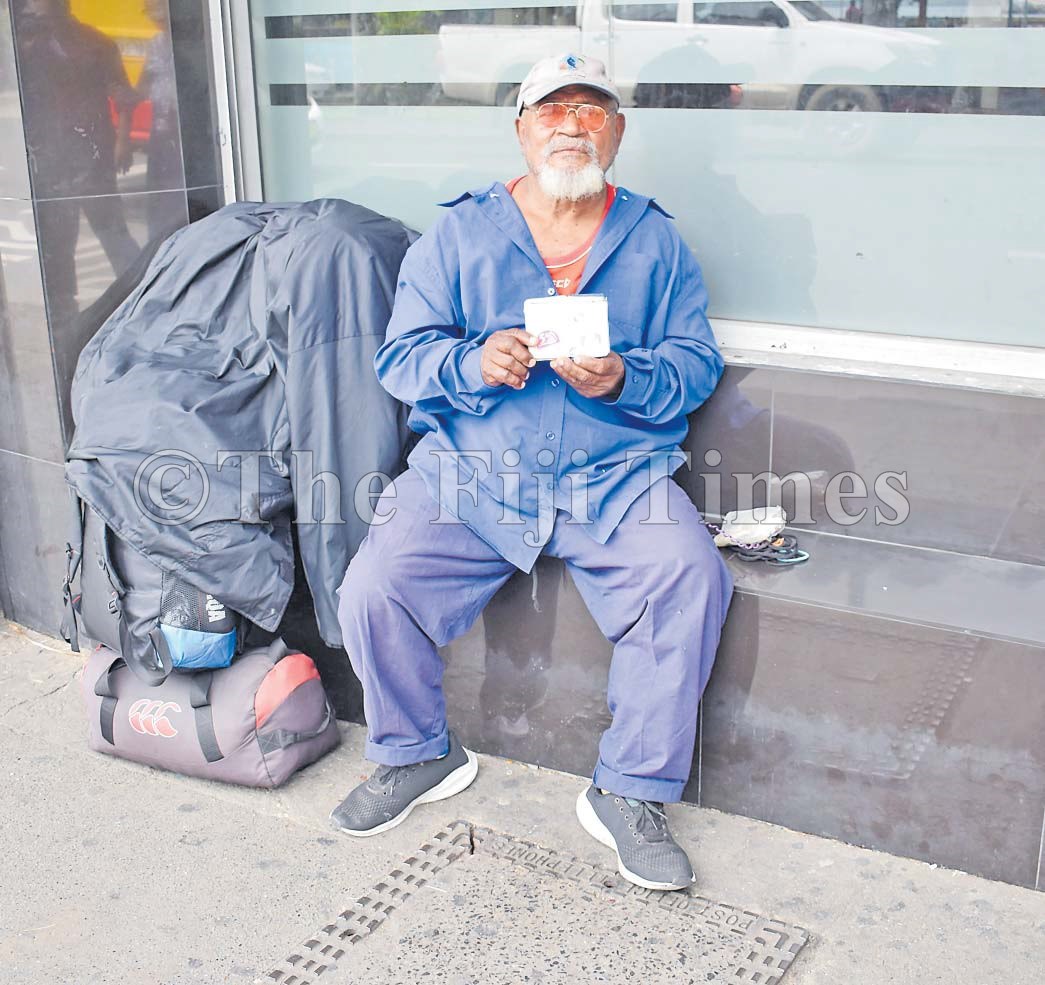In his 73 years on the planet, Sikeli Ravono has experienced a lot.
Some events are fondly remembered and some he tries to keep buried in the back of his mind.
His journey from school to the streets could easily be used as the basis for a movie script.
But this is no rags to riches story.
It’s more of a painful reminder of how the choices one makes, determines the outcome of their life.
“I was 14 years old when I came to Suva from Vunisei Village, Kadavu, with my father to look for better opportunities and education,” he said.
“I began attending Draiba Fijian School and my new friends in Toorak encouraged me to quit school so I joined them on the streets when my dad returned to the village.
“Life in Suva back then was very sweet because you could buy a lot of things with $1.”
After two years roaming the streets with his friends, Mr Ravono realised that he needed to go back to school.
“I went to my teacher, Ratu Meli, and he gave me a letter to take it to Swan Barry the manager of Suva Hotel and I started work the same day.”
Mr Ravono worked at the Suva Hotel for some time before he rejoined his gang from Toorak, the lure of city lights at night was too hard to resist.
One day they went to Popo’s Grog Shop in Toorak and after a heavy night of drinking kava, the gang decided to wash it down with a few drinks.
Intoxicated with brew, they traipsed to the Kings Wharf, Suva, to marvel at the huge ships docked there.
After discovering that there were no security guards around, he and his mates decided to sneak onboard one of the ships.
“I went with my two friends Waisea Ramasi and Micky Bonner on to the ship and we managed to go below deck.
“The cool air made us go off to sleep and we didn’t know that while we were sleeping, the ship left the wharf that same day bound for Australia.”
He said they woke up the next day and realised the ship was moving.
They managed to find hiding places around the vessel but just before it berthed in Australia, a seaman saw them and reported them to the captain.
Mr Ravono said they were rounded up and kept in a cabin and monitored by a security guard.
He said the captain asked for their names and contacted Totogo Police Station for the police to get in touch with their families.
Mr Ravono said when the vessel docked, they were taken to the Immigration Department in Australia.
He said after three days they were flown back to Nadi and transported by a police vehicle known as ‘black maraia’ to Korovou Prison where they were incarcerated for three days for their crime.
Mr Ravono said that was the first but not the last time he would enter prison. Shortly after, he committed another crime and was imprisoned for six months in Naboro.
“After I served my sentence I rejoined my friends on the streets.
“One day we were sitting around Ratu Sukuna Park and I was reading The Fiji Times when this gentleman came straight up to me and gave me a pocket Bible.
“He told me to read it out loud and not to worry about the people seating beside me.”
He said three days after reading the bible, he got a permanent job at the Suva Port.
Mr Ravono still carries the pocket Bible with him today.
He said he retired in 1997 and after that he worked part-time at some nightclubs until he decided to call it a day.
When his uncle died at six miles where Mr Ravono used to stay, he returned to the streets because he didn’t have anywhere else to go.
Mr Ravono said thanks to the Government, he managed to get by on the Social Welfare benefits he received on a monthly basis.
Today, Mr Ravono calls the verandah of a Toorak shop his home.
He sleeps there at nights and thanked the good samaritans who regularly provided food and clothes.
Mr Ravono said it was a big relief for him to tell his side of the story to this newspaper, to let people know of how he survived all these years.
When asked whether he would consider returning to his village, Mr Ravono said it had been too long and he had no intention of doing so.
“But if God calls me there, I will go.”




